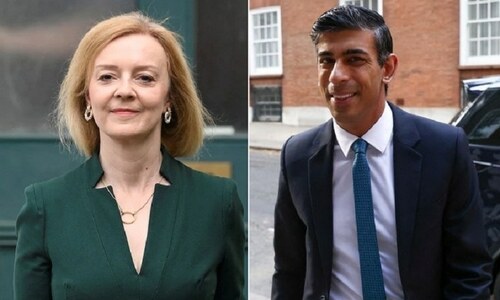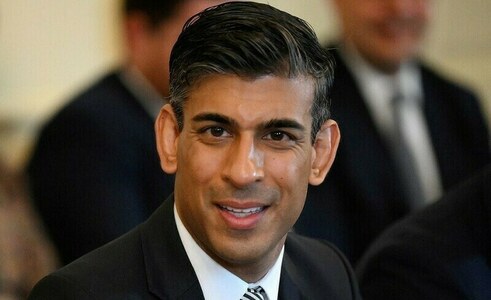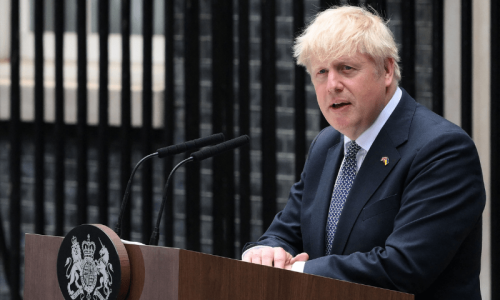
THE United Kingdom’s new prime minister will be revealed to the world today (Monday) after an intense battle, but the cost of picking Boris Johnson’s successor has had serious repercussions for the Conservative party.
The past few weeks were marked by vicious debates between Liz Truss — who has consistently been ahead in polls — and Rishi Sunak, who has now been dubbed a ‘backstabber’ after months of fawning. In fact, the Tory leadership race has hurt both candidates so badly that a poll last week showed swing voters would prefer Johnson, whose favourability had dropped to the lowest ever score in early July.
Both candidates tore into the other’s campaigns during the debate to win the top slot, but their attacks were essentially an indictment of the Tory government’s performance. The debate environment was hostile and lacked substance, as both pandered to the Tory right.
They lambasted each other’s policies on China, on Brexit and the cost of living — even each other’s backgrounds. Truss said Sunak took the UK economy in the “wrong direction” when he was chancellor. Sunak said Truss’ plans to curb Bank of England’s spending could “spook international investors”. “I mean, give them another half-hour, and they could have dispatched not only their entire party to the bonfire of terrible ideas, but the nation itself,” wrote Guardian columnist Zoe Williams.
The process that led to replacing Boris Johnson has cost the party; the leader-to-be has serious internal and national challenges before her
“[The leadership race] has damaged the party,” Dr M. Rodwan Abouharb tells Dawn. The Associate Professor in International Relations at University College London (UCL) added, “There were many ‘blue on blue’ attacks. It was a bruising and divisive race, the winner now needs to bring together a fractious and exhausted party.”
Dr Abouharb touches on what is widely believed to be the ongoing confusion within the party.
“The problem for the Tory Party is that Liz Truss was favoured by the members while Rishi Sunak was favoured by the Conservative Party MPs, precisely because they are thinking about the next election. Liz Truss is a gift for the Labour Party trying to win the next election.”
Though Rishi was once touted as ‘the next British PM’, a campaign in disarray that featured weak policy decisions and blistering attacks on his fellow party member-cum opponent-may have sealed his fate.
“It could have been a vicious race, but Mr Sunak’s poor performance in an early televised debate allowed Liz Truss to entrench her already-established lead,” Dr Helen Brown Coverdale, Lecturer in Political Theory at UCL, tells Dawn.
“The Conservative party has always had problems with divisions, and has been divided on what the relationship between the UK and its European neighbours should be for well over 40 years. What has been divisive is that both candidates have been making public speeches in order to win the votes of the most hardline Conservative party members, which [is] likely to alienate the vast majority of citizens who have no say at all in this current race to establish their new prime minister.”
However, she added that though Sunak is “the better communicator of the two candidates, the task ahead will be a difficult one for any Conservative party leader.
‘Truss deficit’
The serving secretary of state for Foreign, Commonwealth and Development Affairs since 2021 and Minister for Women and Equalities since 2019, Truss has been a conservative party MP from South West Norfolk since 2010.
She is often described as a ‘shape-shifter’, because while she earlier fought for Britain to remain in the European Union, she is now a staunch defender of Brexit. Not only does she have plenty of government experience, she is a foreign policy hawk who is popular amongst the Tory right.
Since making the final round, though she has led every poll of the membership by impressive margins, polling by Opinium for the Observer showed that whereas 49 per cent of people who voted Tory in 2019 believed Truss “looks like a prime minister in waiting” at the beginning of August, that figure had dropped to just 31pc by August 30.
Not only is Truss seen as less likable the more she engages in public speaking, she has serious challenges to tackle: the enormous increase in energy prices leading to a recession, a fractured NHS, and the ongoing war in Ukraine.
“The rising costs of energy will be the biggest challenge,” says Dr Coverdale.
“There are other factors driving the rising cost of living in the UK, and many factors driving the rising costs of energy across Europe. There is some protection for families in the UK, although very many people will struggle to pay their heating bills this winter. However, small business are particularly at risk, with energy prices forecast to rise by over three and a half times the cost of the previous year.”
Published in Dawn, September 5th, 2022













































